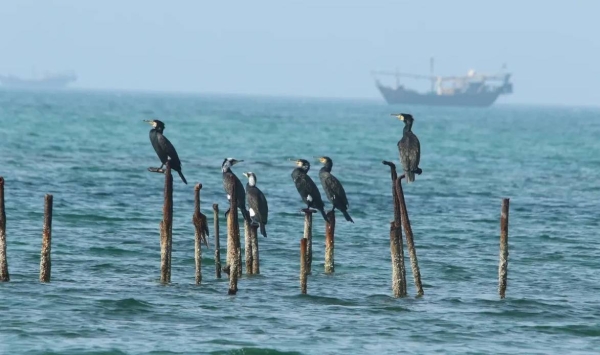Saudi Arabia is taking a significant step towards preserving its marine treasures by launching a groundbreaking project to assess the health of its vital ecosystems in the Arabian Gulf. Led by the National Center for Wildlife (NCW), the project aims to create a comprehensive roadmap for protecting marine biodiversity and ensuring the long-term health of the Gulf waters. NCW’s CEO Dr. Mohammed Qurban stated that scientists will evaluate the condition of coral reefs, seagrass meadows, and mangrove forests in the area. They will identify natural and human-caused threats to these habitats and develop strategies to mitigate these risks. The project will use the collected data to design a management plan for the conservation and restoration of the coastal ecosystems in the region.
With the vast Saudi waters in the Arabian Gulf spanning over 27,000 square kilometers, they serve as a haven for a diverse array of marine life that is supported by the rich ecosystems of the Gulf. The project aims to ensure that these vital habitats continue to thrive for generations to come. By assessing the health of coral reefs, seagrass meadows, and mangrove forests, scientists will be able to identify and address any threats posed to these habitats. This proactive approach will help in the development of strategies to mitigate these risks and ensure the long-term sustainability of the Gulf waters and its marine life.
The comprehensive assessment of the marine ecosystems in the Arabian Gulf will provide valuable data that will inform the development of a management plan for the conservation and restoration of coastal habitats. This plan will focus on preserving the biodiversity of the area and implementing measures to protect and maintain the health of the Gulf waters. By understanding the natural and human-caused threats to these habitats, scientists will be able to design targeted interventions that will help in the preservation of marine life and the overall health of the Gulf ecosystem.
The project spearheaded by the NCW is a testament to Saudi Arabia’s commitment to the protection of its marine environment and the conservation of marine biodiversity. By investing in the assessment and conservation of its marine ecosystems, the country is taking proactive steps to safeguard its natural resources and ensure a sustainable future for its coastal habitats. This initiative will not only benefit the marine life in the Arabian Gulf but also contribute to the overall health of the region’s marine ecosystems.
The conservation and restoration of marine ecosystems in the Arabian Gulf will have far-reaching benefits for both the environment and the communities that rely on these resources. By ensuring the health of coral reefs, seagrass meadows, and mangrove forests, Saudi Arabia is preserving important habitats that support a diverse range of marine life. This will not only help in maintaining the biodiversity of the Gulf waters but also contribute to the sustainability of fisheries and other marine-related industries in the region. Ultimately, this project will play a crucial role in protecting the marine environment and ensuring the long-term viability of the Arabian Gulf’s ecosystems.
In conclusion, Saudi Arabia’s groundbreaking project to assess the health of its marine ecosystems in the Arabian Gulf is a crucial step towards safeguarding the region’s marine treasures. By evaluating the condition of coral reefs, seagrass meadows, and mangrove forests, scientists will be able to identify and address threats to these habitats and develop strategies for their conservation and restoration. This proactive approach will not only benefit the marine life in the Gulf waters but also contribute to the preservation of the region’s rich biodiversity and the long-term sustainability of its marine environment.


























